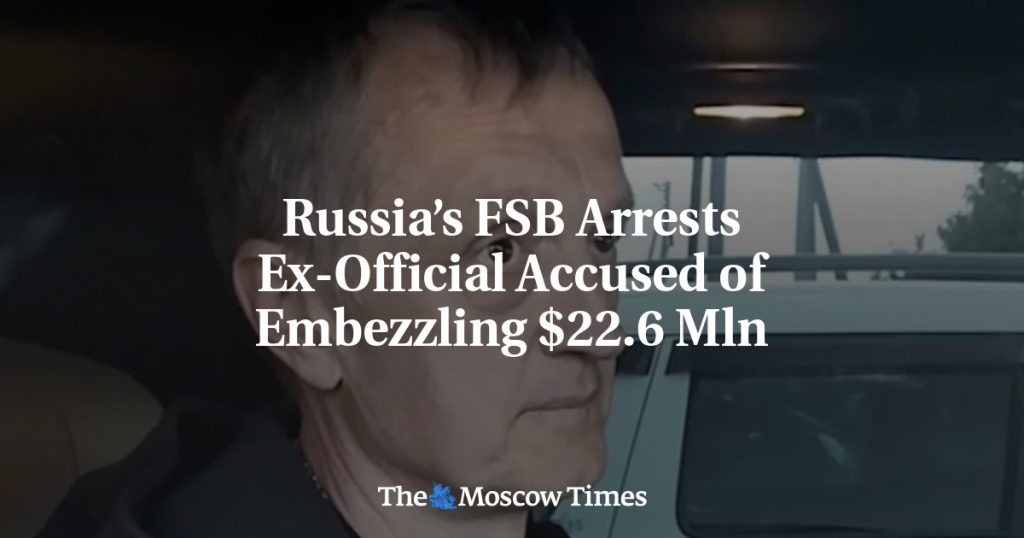The Federal Security Service of Russia (FSB) announced the arrest of former Agriculture Ministry official Oleg Donskikh on charges of embezzling billions of rubles over a decade ago. Donskikh, who had been on the run for 12 years, was apprehended in the Moscow region. The embezzlement occurred between 2007 and 2008 when Donskikh, along with his accomplices, allegedly stole loans issued by Rosselkhozbank JSC and funds received from Rosagroleasing, Russia’s largest state-owned agro-industrial leasing company. In total, Donskikh was accused of embezzling over 2 billion rubles ($22.6 million).
The FSB revealed that Donskikh received assistance from two businessmen from the Lipetsk region, both of whom were imprisoned in 2017. A video of Donskikh’s arrest, shared by Russian state media, portrayed him claiming ignorance of the charges against him. He stated that he had been residing in the Moscow region since 2008. The charges against Donskikh highlight the prevalence of corruption and embezzlement in Russia’s public sector, with individuals in positions of power taking advantage of state-owned institutions for personal gain.
The case involving Donskikh sheds light on the systemic issue of corruption within Russian government agencies, with high-ranking officials abusing their authority and exploiting state resources for personal enrichment. Embezzlement of billions of rubles by a former Agriculture Ministry official underscores the magnitude of financial fraud and corruption plaguing the country. The involvement of accomplices and cooperation with businessmen from different regions of Russia further highlights the complexity and interconnected nature of these illicit activities.
The arrest of Donskikh after a long period of evasion demonstrates the determination of law enforcement agencies to pursue individuals implicated in financial crimes and hold them accountable for their actions. The collaboration between the FSB, the Interior Ministry, and other law enforcement entities underscores the coordinated efforts to combat corruption and financial fraud within the country. The arrest of Donskikh also serves as a warning to other corrupt officials that they will not be able to evade justice indefinitely and will eventually face the consequences of their illicit actions.
The video of Donskikh’s arrest, released by Russian state media, provides insight into his demeanor and state of mind during the apprehension. His denial of knowledge regarding the charges against him and his claim of innocence raise questions about accountability and responsibility in cases of corruption. The transparency of sharing such videos with the public underscores the government’s commitment to combating corruption and promoting accountability within its institutions. The arrest of high-profile individuals like Donskikh sends a strong message about the consequences of engaging in corrupt practices and the importance of upholding ethical standards in public service.
In conclusion, the arrest of Oleg Donskikh on charges of embezzlement serves as a reminder of the pervasive issue of corruption within Russian government agencies and the need for stringent measures to combat financial fraud. The case highlights the collaboration between law enforcement agencies in pursuing individuals involved in illicit activities and holding them accountable for their actions. The involvement of accomplices and prior arrests of businessmen connected to Donskikh reflect the widespread nature of corruption within the public sector. The release of a video showing Donskikh’s arrest demonstrates the government’s commitment to transparency and accountability in addressing corruption at all levels. Ultimately, the case underscores the importance of upholding ethical standards and integrity in public service to prevent future instances of financial misconduct and embezzlement.















